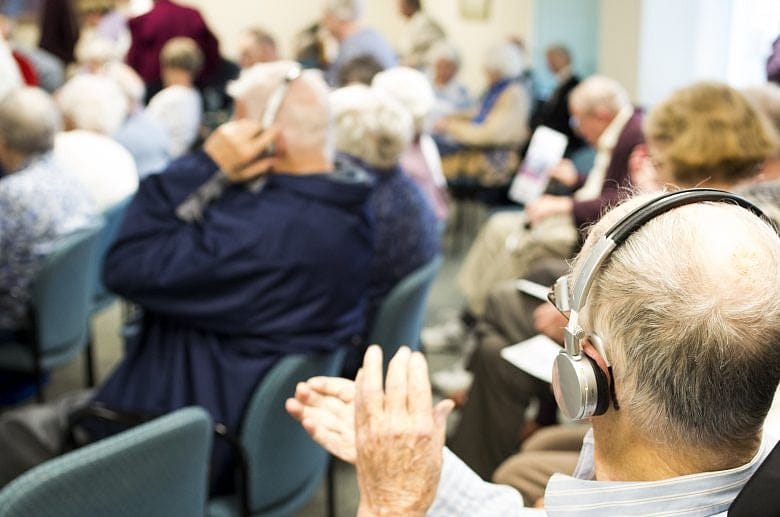Entrepreneurs go from silent dances to aiding elders

MANCHESTER, N.H. – The creators of Eversound, a wireless headphone system used to enhance group events, Jake Reisch and Matt Reiners won recognition from the U.S. Small Business Administration last week as the agency named them New England's Young Entrepreneurs of 2016, honoring their technology's ability to reconnect elders with their communities.
"We were totally humbled and weren't expecting it," Reisch said. "It's always nice for the team to see some acknowledgment."

